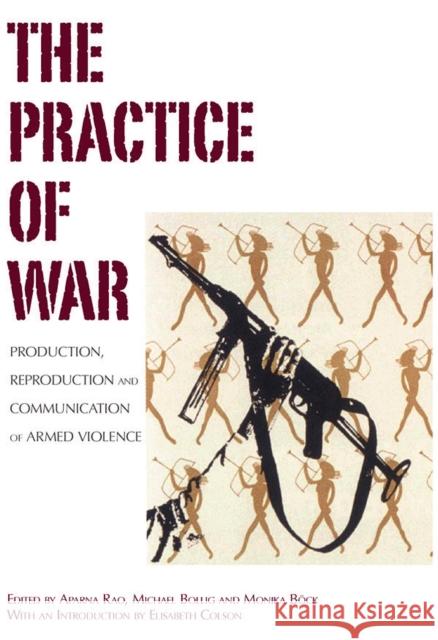The Practice of War: Production, Reproduction and Communication of Armed Violence » książka
The Practice of War: Production, Reproduction and Communication of Armed Violence
ISBN-13: 9780857451415 / Angielski / Miękka / 2011 / 366 str.
The Practice of War: Production, Reproduction and Communication of Armed Violence
ISBN-13: 9780857451415 / Angielski / Miękka / 2011 / 366 str.
(netto: 149,03 VAT: 5%)
Najniższa cena z 30 dni: 140,79
ok. 22 dni roboczych.
Darmowa dostawa!
" A]n admirable example of how social anthropologists may contribute to understandings of conflicts and armed violence as complex and articulated social processes" - Ethos The fact is that war comes in many guises and its effects continue to be felt long after peace is proclaimed. This challenges the anthropologists who write of war as participant observers. Participant observation inevitably deals with the here and now, with the highly specific. It is only over the long view that one can begin to see the commonalities that emerge from the different forms of conflict and can begin to generalize. From the Introduction] More needs to be understood about the ways of war and its effects. What implications does war have for people, their lived-in communities and larger political systems; how do they cope and adjust in war situations and how do they deal with the changed world that they inhabit once peace is declared? Through a series of essays that move from looking at the nature of violence to the peace processes that follow it, this important book provides some answers to these questions. It also analyzes those new dimensions of social interaction, such as the internet, which now provide a bridge between local concerns and global networks and are fundamentally altering the practices of war.
"[A]n admirable example of how social anthropologists may contribute to understandings of conflicts and armed violence as complex and articulated social processes" · EthosThe fact is that war comes in many guises and its effects continue to be felt long after peace is proclaimed. This challenges the anthropologists who write of war as participant observers. Participant observation inevitably deals with the here and now, with the highly specific. It is only over the long view that one can begin to see the commonalities that emerge from the different forms of conflict and can begin to generalize. [From the Introduction]More needs to be understood about the ways of war and its effects. What implications does war have for people, their lived-in communities and larger political systems; how do they cope and adjust in war situations and how do they deal with the changed world that they inhabit once peace is declared? Through a series of essays that move from looking at the nature of violence to the peace processes that follow it, this important book provides some answers to these questions. It also analyzes those new dimensions of social interaction, such as the internet, which now provide a bridge between local concerns and global networks and are fundamentally altering the practices of war.











